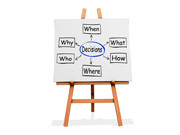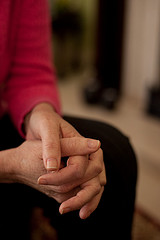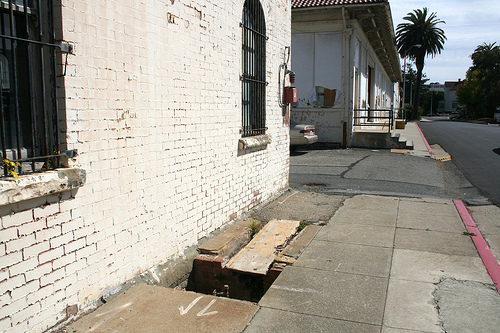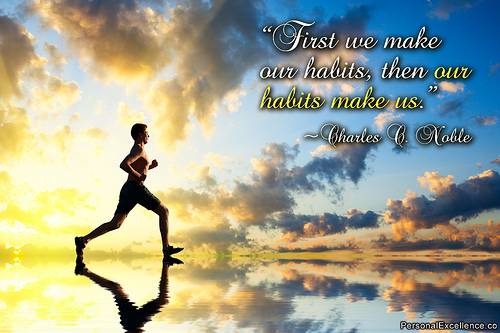We all want to find more peace, joy, and purpose in our lives.
Knowing what to do to achieve that goal is a challenge, but it is something we can learn.
This is the third of four STEPS Journey Blog articles on “A Vaccine for Addiction.” In this series, we describe a process that will immunize us against compulsive behaviors and bad habits and also help us live more effectively today.
 This vaccine is not an injection, but a way of living in which we learn to focus on:
This vaccine is not an injection, but a way of living in which we learn to focus on:
- The Why – Developing self-awareness and the motivation to change.
- The What – Living intentionally and establishing positive daily habits.
- The How – Taking the next right step, one step at a time, over and over.
The previous article was on “Finding Your Why.” Once we have decided why we need to change, we are still faced with knowing what to do, and the answer is to:
- Get help.
- Avoid temptations.
- Form new habits.
Get help
In some situations, the best (maybe only) way to keep our issues from getting worse is to get help, and ideally to obtain it sooner rather than later.
“You are never strong enough that you don’t need help.” (César Chávez)
 Many of us have medical or emotional illnesses that contribute to our problems. For example, ADHD, autism, depression, and anxiety can each contribute to a progression toward addiction.
Many of us have medical or emotional illnesses that contribute to our problems. For example, ADHD, autism, depression, and anxiety can each contribute to a progression toward addiction.
If you have one of those conditions, you should get professional help.
And if you think that clinical cases of depression or anxiety are “only in your mind” and are “something you can just work out,” you don’t know the facts about those diseases.
Addiction is also a disease, at least in many respects. It is certainly agreed that, like other illnesses, it is best treated with specific and intensive treatment.
“Many people do not understand why or how other people become addicted to drugs. It is often mistakenly assumed that drug abusers lack moral principles or willpower and that they could stop using drugs simply by choosing to change their behavior. In reality, drug addiction is a complex disease, and quitting takes more than good intentions or a strong will.” (National Institute of Drug Abuse)
If you have a medical, emotional, or addiction problem: Get help!
Avoid temptations
We will never escape temptation, but we can limit our exposure to it.
In the article on “A Vaccine for Addiction: Finding Your Why” we talked about learning our “triggers,” which are things which set off our compulsive habits. If there are situations or people which lead us to make bad choices, we can adjust our lifestyle to avoid them as much as possible.
For example, we can choose to not have desserts in the house, avoid friends who get us in trouble, stop going to bars, or minimize situations which create stress.
“I walk down the street. There is a deep hole in the sidewalk. I fall in. I am lost… I am helpless. It isn’t my fault. It takes forever to find a way out.

I walk down the same street. There is a deep hole in the sidewalk. I pretend I don’t see it. I fall in again. I can’t believe I am in the same place. But, it isn’t my fault. It still takes me a long time to get out.
I walk down the same street. There is a deep hole in the sidewalk. I see it is there. I still fall in. It’s a habit. My eyes are open. I know where I am. It is my fault. I get out immediately.
I walk down the same street. There is a deep hole in the sidewalk. I walk around it.
I walk down another street.”
(Portia Nelson)
All of us have “holes” we fall into, which could be anxiety, anger, alcohol, or a hundred other things.
If there is a bad habit you keep falling into: Walk down another street!
Form new habits
We all have bad habits; maybe we even know what they are. It’s okay, we all have issues.
We can change our life by changing our habits, and the way to do that is to:
- Remember our Why – Each day, think about Why we need to change by counting the cost of staying where we are and anticipating the benefits of doing something different.
- Set achievable goals – The thought of changing our life may seem overwhelming, even discouraging, but we can lay out some realistic objectives we can commit to.
- Team up with others – One of the best tools in forming new habits is accountability, and the encouragement of fellow travelers will help us along our journey.
- Live one day at a time – There is nothing we cannot do, one day at a time. We don’t have to avoid our bad habits and addictions forever, just for today.

If you want to reclaim ownership of your life: Form new habits!
Knowing what to do to avoid issues or addictions is tough, but now you have a good start.
The next article will wrap up this series on the Why, the What, and the How of finding a vaccine for addiction, compulsive behaviors, and bad habits.
Then, it will be up to you.
Question: Which of the three suggestions above (get help, avoid temptations, form new habits) will be most helpful helping you protect against future issues and problems?
Action: Read next week’s STEPS Journey Blog article. Then, go back and read all four of the series on “A Vaccine for Addiction” end-to-end to see the whole process.
Photo by One Way Stock  Photo by mattymatt
Photo by mattymatt  Photo by Joe Houghton
Photo by Joe Houghton  Photo by Celestine Chua
Photo by Celestine Chua  Photo by Marco Bellucci
Photo by Marco Bellucci 

